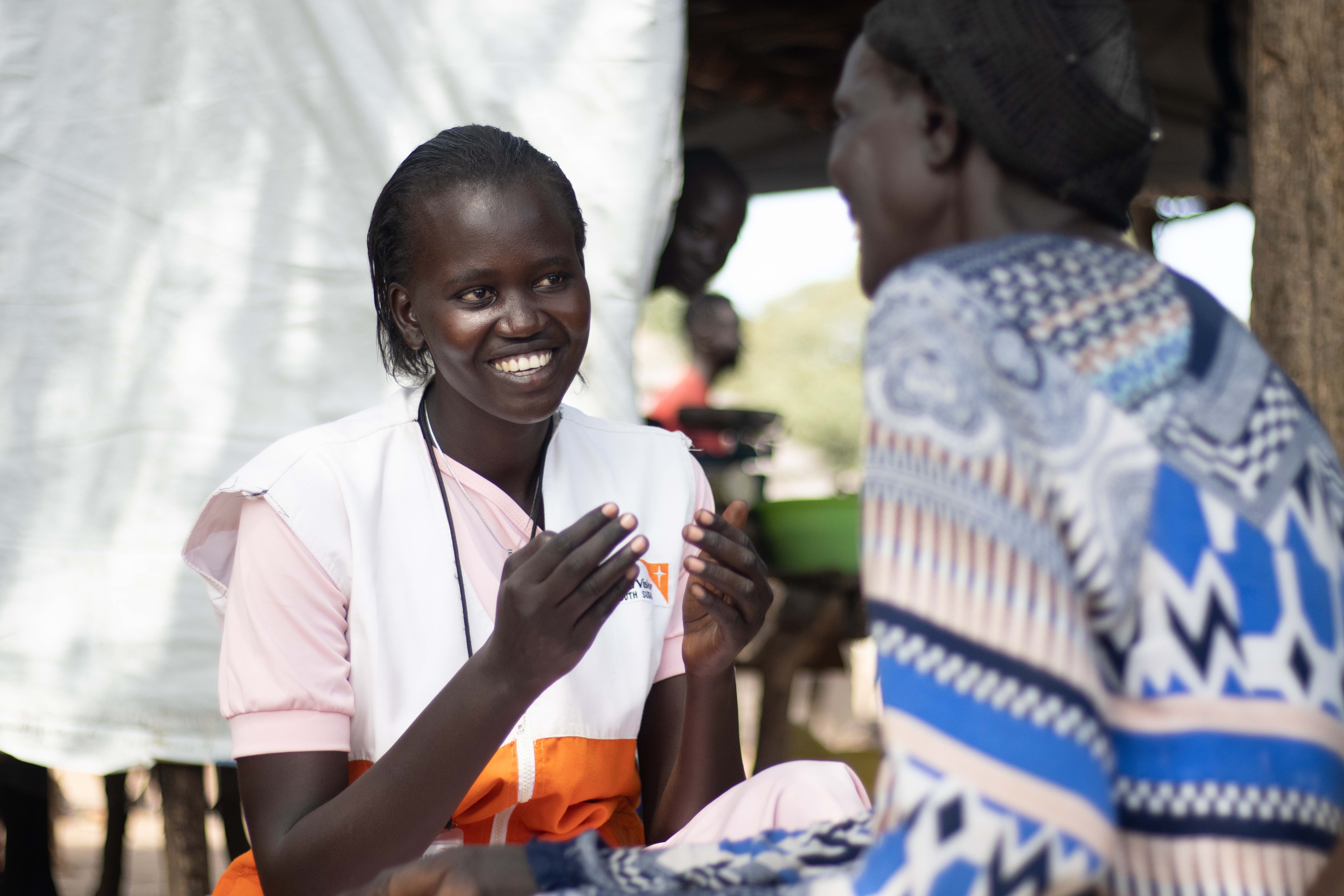An agriculturist determined to stop hunger through modern farming

I always dreamed of having a job that will give me the opportunity to serve girls and communities. I highlighted girls in particular because I believe many are deprived of their rights for a bright future.
My prayer was answered after I was hired as project assistant for its Education Cannot Wait Project. Among the stories that I often heard was that girls are not encouraged to go to school, and if they do, they are the first to drop out for lack of support.

Seeing this issue around me, I met with parents, government officials, community leaders, teachers, even the children, to promote awareness on getting the girls to school. I also spent more time with girls to make sure they take their studies seriously and finish it.
I believe that educating children, especially girls, is one good way to bring peace and change the course of South Sudan.
Currently, I have moved to BRACE II Project as Cash for Asset Field Technician. I always wanted to become a good agriculturist. My father who was a medical doctor and my friends succeeded in discouraging me because they said it is not fit for a woman.

My father threatened not to support my studies if I did not enroll in midwifery so I agreed and completed one year. In 2017, I went for a government exam for an agriculture course, which I passed to my surprise.
I survived my first year but things were tough and full of disagreements until my father relented and gave me his support. South Sudan has a lot of food security problems, poor nutrition practices, and many farmers. Still use ancient farming methods resulting to poor yield.
South Sudan has a lot of food security problems, poor nutrition practices, and many farmers. Still use ancient farming methods resulting to poor yield.
We are also stuck with subsistence farming when we can potentially grow big with commercial farming. As an agriculturist, I can use my knowledge and skills to help change my people’s mindsets.
I also want to work on a goal that food is affordable, accessible and available for families. I can also start teaching people of the importance of growing vegetables, fruit trees, even all kinds of trees.

The challenges encountered doing this were very hard. One community leader told me why change when what they practice came from their grandfathers and they have good harvest. People were very resistant.
More trainings and awareness activities are needed to convince people to adapt modern way of farming and understand its benefits. Another hindrance is communal conflict which make communities inaccessible for these campaigns.
The roads are always bad and impassable during bad weather that makes mobility a problem. But dialogues need to be done with the community to provide them with the necessary solutions.

The support of donors like FCDO and SDC is crucial for achieving food security, resilience and helping the most vulnerable in the country. Giving food aid without teaching them how to produce will cause them more harm than good.
It also creates more room for laziness so when the project ends, our people go back to suffering again. In the coming years, I aim fo have my own big orchard, a vegetable garden and a farm growing a lot of crops.

Blog by Amou Helen Angui, who works as Food for Asset Field Technician with BRACE II I Photos by Christopher Lete and Eugene Combo/World Vision